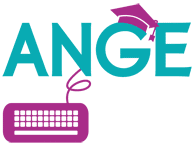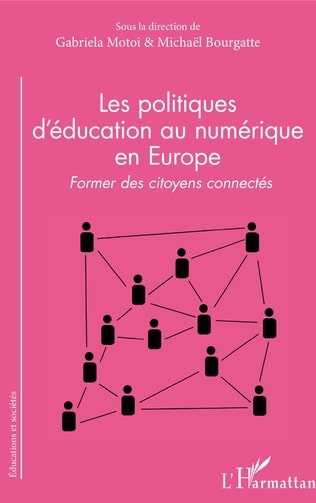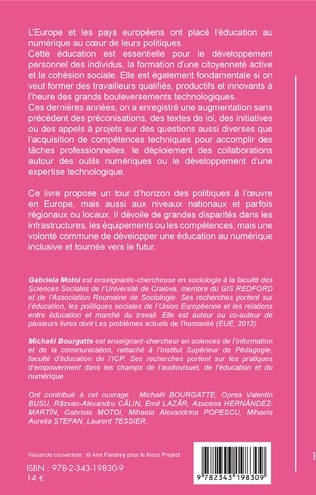
European digital policies in higher education (output 01)
This study is the result of a collaborative work between teachers and students from 3 universities (documentation, writing and analysis of results coming from a survey answered by 191 people (heads of institutions, trainers, digital technicians, teachers…). This theoretical and applicative study presents the conceptual boundaries on the digital economy, digital skills, but also in European policy. It continues with the analysis of the main results of the survey.
Developed within the framework of the project Erasmus + 2017-1-FR01-KA201- 037369, The anchoring of the digital in the governance of the establishments (ANGE), this study is the fruit of a collaboration (joint writing) between the teachers and the students enrolled in Master of three universities: the University of Craiova (Ucv) – Romania (5 students), the Catholic Institute of Paris (ICP) – France (10 students) and the University of Salamanca (US) – Spain (2 students). Each student was supported and accompanied by a tutor (a teacher from the university where the student was registered) for the work of documentation, writing the text and interpreting the results.
The study “Policies of secondary education in Europe” has a theoretical and applicative character and is articulated around 2 axes. A first part, consisting of three chapters, in which are presented conceptual boundaries on the digital economy, digital skills, but also the main European policy documents in the field of digital (including the Education and Training 2020 Strategy). The third chapter of the theoretical part is the result of a secondary data analysis useful for building a “country profile” with regard to digital anchoring for each of the 7 partner countries of the ANGE project: Belgium, Bulgaria, Spain , Finland, France, Quebec (considered as an example of good practice), Romania.
The second part of the study presents the main results of a Trend Questionnaire, which was answered by 191 people (heads of institutions, administrators, digital technicians, teachers) from the seven partner countries. It is composed of two chapters; a first chapter presenting the methodological benchmarks of quantitative research (objectives, methods, tools, calendar of activities, research limits) and a second chapter, presenting the results recorded in the 57 questions of the Trends Questionnaire. The questionnaire focused on developments and changes, from a forecasting and prospectivist point of view, in society and in the technical and technological fields (in particular ICT), which will result in the necessary innovations in the piloting methods of the project. digital, teaching and learning.
The results are presented in the form of general analyzes and bi-varied analyzes (in correspondence with the country from which the respondents come) and are presented in the form of tables, graphs and interpretations (from a point of view). comparative view).
The Conclusions and courses of action presented at the end of the study are articulated on four levels: the digital context in education: digital in everyday life – the digital economy; new skills and digital learning; organization and equipment of establishments; institutional governance.
L’Europe et les pays européens ont placé l’éducation au numérique au cœur de leurs politiques. Ces dernières années ont vu l’augmentation sans précédent de préconisations, de textes de loi, d’initiatives ou d’appels à projets sur des questions aussi diverses que l’acquisition de compétences techniques pour accomplir des tâches professionnelles, le déploiement des collaborations autour des outils numériques ou le développement d’une expertise technologique. Ce livre propose un tour d’horizon des politiques à l’oeuvre en Europe, mais aussi aux niveaux nationaux et parfois régionaux ou locaux. Il dévoile de grandes disparités dans les infrastructures, les équipements ou les compétences, mais une volonté commune de développer une éducation au numérique inclusive et tournée vers le futur.
Date de publication : 2 mai 2020
- Gabriela Motoi est enseignante-chercheuse en sociologie à la faculté des Sciences Sociales de l’Université de Craiova, membre du GIS REDFORD et de l’Association Roumaine de Sociologie.
- Michaël Bourgatte est enseignant-chercheur en sciences de l’information et de la communication, rattaché à l’Institut Supérieur de Pédagogie, faculté d’éducation de l’ICP.
Ont contribué à cet ouvrage : Michaël BOURGATTE, Oprea Valentin BUSU, Razvan-Alexandru CALIN, Emil LAZAR, Azucena HERNÁNDEZ-MARTÍN, Gabriela MOTOI, Mihaela Alexandrina POPESCU, Mihaela Aurelia STEFAN, Laurent TESSIER.
124 pages
ISBN : 978-2-343-19830-9
EAN13 : 9782343198309
EAN PDF : 9782140148873




